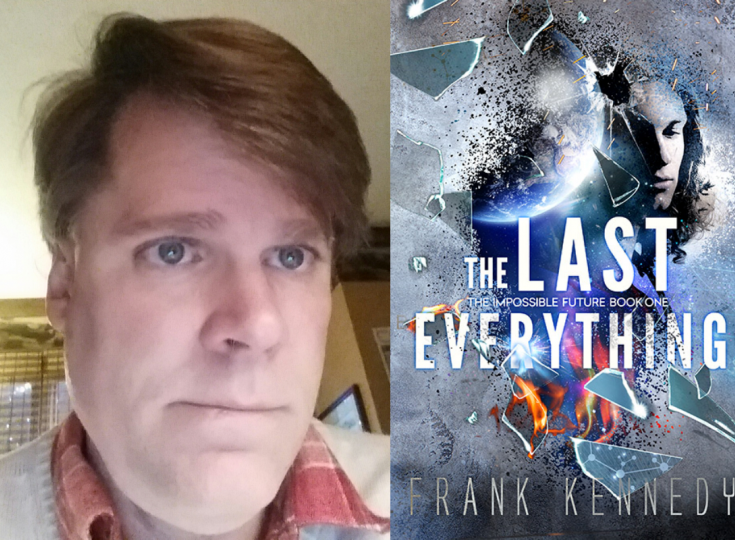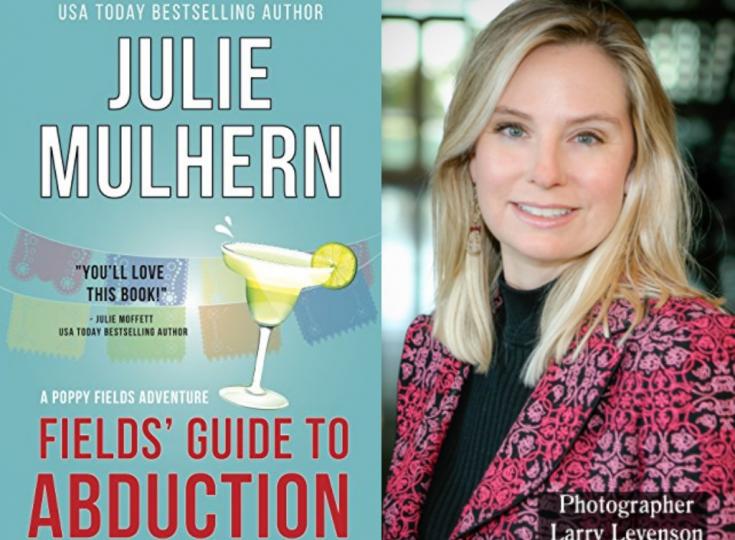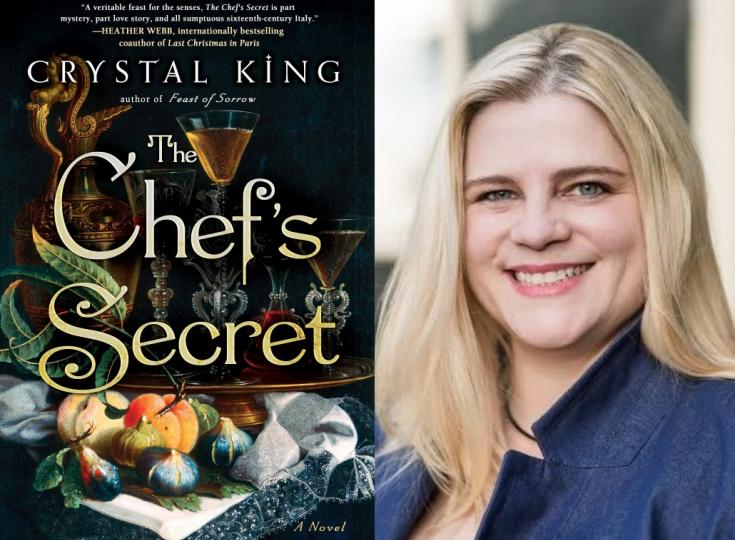Suzannah Rowntree - Mystic Fantasy With a Touch of Real-World History
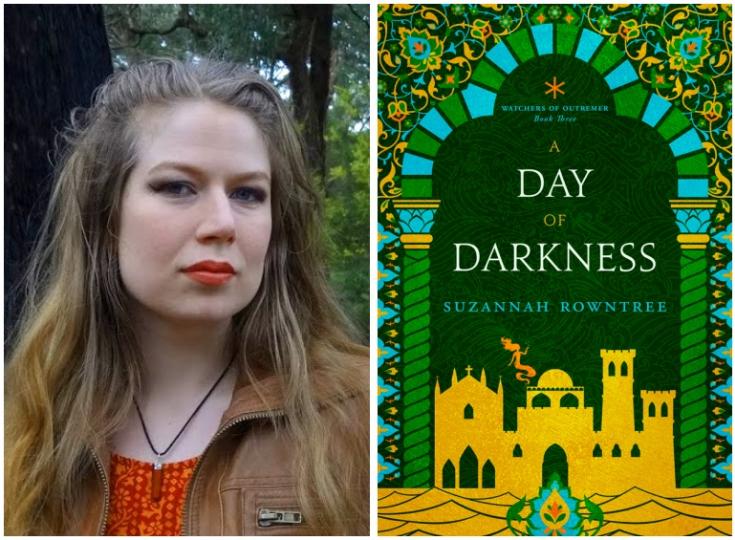
Suzannah Rowntree likes to write historical fantasy fiction. She lives in a big house in rural Australia with her awesome parents and siblings, drinking fancy tea and writing historical fantasy fiction that blends real-world history with legend, adventure, and a dash of romance. If you like the mythic fantasy of Stephen Lawhead, S. A. Chakraborty or Naomi Novik, you'll probably like her stories too! As our Author of the Day, Suzannah tells us all about her book, A Day of Darkness.
Please give us a short introduction to what A Day of Darkness is about.
I like to pitch A Day of Darkness as “Two Very Bad murder children adopt slightly used middle-aged dad, for fans of The City of Brass.” More seriously: this is a historical fantasy with time travel, djinn, demons, court intrigue, and immortal amnesiac assassins, set during the twilight of the crusader states in Tripoli in 1289.
What inspired you to write this story? Was there anything in particular that made you want to tackle this?
A Day of Darkness can be read as a standalone, but it’s actually the third book in a larger (9-book) series that covers the 200-year history of the medieval crusader states. I’ve been fascinated by medieval history all my life, and the Watchers of Outremer series arose out of the realization that the crusades weren’t just something that you came back from. Some crusaders chose to stay in the east for generations, where in uneasy collaboration with the local peoples (both Christian and Muslim) they created this incredible, unique, and fascinating culture. Somehow, despite everything I’d learned about western Europe, it wasn’t until about ten years ago that I realized this when I read a classic 1954 YA novel, Ronald Welch’s Knight Crusader. That book featured a young Frankish nobleman who had grown up in the crusader east and had never even visited the lands in western Europe where his family had originated, and it blew my mind a bit to realize that I had been sleeping on this whole fascinating aspect of medieval history. The more I learned, the more I thought, “Someone should tell this story!” Not the story of the crusades as military expeditions, but the story of the crusader states as a genuine attempt to build a lasting peace in a proverbially disputed territory. Historically speaking, in fact, the crusaders from the west distrusted and disdained the Frankish settlers for having “gone native” so to speak, intermarrying with the local population, adopting local habits and dress, and needing to find ways to conciliate Muslim neighbors.
I realized that I had never heard the story of the crusades told from the perspective of people—whether Franks, local Christians, or Muslims—who made their lives in the east and never had the option of going home again to western Europe. The crusades meant something vastly different to them, and I wanted to imagine the story through their eyes.
Why did you pick 1289 Tripoli as the backdrop for your story?
The premise of the series is that a family of Greco-Syrian aristocrats from the seventh century travel forward through the centuries to different points in the time of the crusades. Eldest son Lukas drops into the brutal warfare of the First Crusade, a story I began in (SPFBO 2020 finalist) A Wind from the Wilderness. In book two, The Lady of Kingdoms, eldest daughter Marta finds herself navigating the court intrigues in Jerusalem in the lead-up to the Third Crusade. And in book three, A Day of Darkness, their dad, John Bessarion, finds himself in the midst of the final dissolution of the crusader states at the end of the thirteenth century. Thus, I have each of the family living through the epic events that occurred very neatly at the beginning, middle, and end of the crusader states.
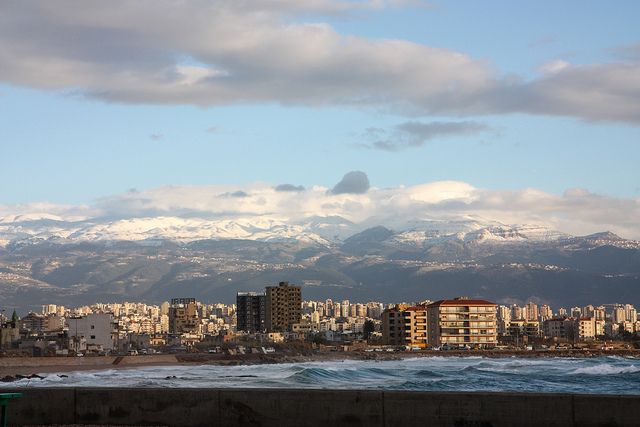
I picked Tripoli because it was where all the excitement was happening at this particular point in time. As you’ll see if you read the book, 1289 was a big year for Tripoli, and it capped off several decades’ worth of civil war, court intrigue, commando raids, and brutal executions—the kind of stuff a fantasy novelist rubs her hands over. I chose to insert John, the Bessarion patriarch, into the chronological end of the crusader states because he’s trying to figure out what’s happened to the rest of his family, and the fun thing is that as he’s trying to find his feet in this strange new future, he’s also stumbling across clues suggesting that his children have been here before him. And now he’s being affected by their actions, which turns the parent/child relationship on its head in a really fun way.
Tell us more about John. What makes him tick?
In his own time, John has all the power and privilege: a war hero, an imperial governor, a Presbyter of the Watchers (a religious organization I created for the series). He also has some dark deeds on his conscience, for which he’s trying to atone. So he feels a huge amount of responsibility—not just to atone for the past, but to protect his people and homeland.
Only now he’s been torn away from all that and thrown centuries into a future where everything he was fighting to prevent in his original timeline has now come true—there have been multiple foreign invasions and his own power has vanished. So, throughout the book, he’s laser-focused on figuring out a way to go back in time. He wants to reunite his family, he wants to be there for his wife Rahel, and above all, he wants to regain control of the course of history. But should he have that power?
What makes Soraya so special?
Soraya is particularly dear to my heart—she’s a brutally sarcastic djinn enslaved to Saif, an immortal assassin. Soraya hates being used to assassinate people and destabilize regimes, but she’s almost completely under Saif’s control and has very limited capacity to resist his commands. Her memories are routinely stolen, so she can’t even remember whether she once used to be a better person. It isn’t until she meets John that she can even imagine a way to get free of Saif and make herself a better future.
Besides writing, what other secret skills do you have?
I write very diligently every day, but on the weekend, once I’m finished writing for the week, you’ll usually find me in the kitchen cooking something self-indulgent. I love experimenting with unusual flavors: recently I’ve challenged myself to cook a dessert with every herb in the garden (except chives). The winners so far? Sage and pear tart, tarragon panna cotta, and nectarine thyme crumble.
Interesting cover. Tell us more about how that came about.
My cover designer for the series so far has been the legendary Jenny Zemanek – I’ve been so lucky to work with my favorite designer. The Watchers of Outremer series is supposed to be rigorously historically accurate to the best of my abilities, and Jenny certainly rose to the occasion with this book. The pointed arch with alternating light and dark colors is inspired by the ablaq stonework used in Mamluk architecture. I also shared Mamluk floral patterns with Jenny, as well as a thirteenth-century painting of Tripoli showing the fascinating blend of architectural styles in Crusader Tripoli, from pitched-roof western-style churches to eastern-style domes. And, of course, if you look closely, you’ll see Soraya hovering above the city.
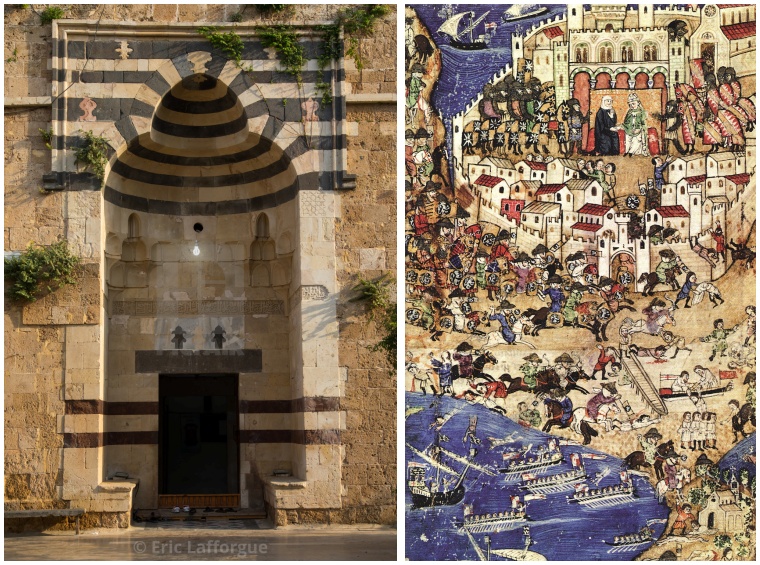
This is book 3 of a series. Can it be read as a standalone? How do the other books in the series tie in with this one?
Yes, it can be read as a standalone, as each of the books begins with the same inciting event (a run-in with an evil sorcerer) before branching off to follow each of the Bessarions on their adventures in different time periods. That said, the further we get into the series, the more the different storylines begin to interweave as Lukas, Marta, and John discover more about how the others have impacted the timeline.
Do any of your characters ever take off on their own tangent, refusing to do what you had planned for them?
I’m going to have to admit that this very rarely happens! I am definitely more a planner than a discovery writer, and these days I usually have a pretty good idea of who my characters are and how they will react to the events of the plot, before I sit down to write. That said, almost anything is up for grabs during the planning stage itself. Soraya is the heart of this book, and she didn’t exist at all in the first draft!
What did you have the most fun with when writing A Day of Darkness?
Beyond a doubt it was Soraya, and her interactions with both John and Saif. Soraya has a lot of attitude—with Saif she’s pessimistic and jaded and masks her rage with an unceasing flow of sarcasm, which he completely fails to comprehend. John, on the other hand, becomes a source of hope and comfort to her. Even though she can’t remember where they’ve met before, she can’t help feeling drawn to trust him. And obviously, he’s already very happily married, so for John, romantic feelings are off the table. I love a good romance as much as the next girl, but I have a lot of passionate feelings about platonic friendships between men and women, and A Day of Darkness was my opportunity to write about those.
I mean, I’m not saying that this book is inspired by Captain America: The Winter Soldier, but if you did want a temporally displaced cinnamon roll war vet teaming up with a seductive secret agent to take down a brainwashed amnesiac assassin using the power of friendship...have I got the book for you.
When starting on a new book, what is the first thing you do?
Most of my stories begin with a moment of inspiration. The first thing I normally do after that is just let the thing simmer for a while on the back-burner of my mind. As a historical fantasy author, everything I’ve written so far is inspired by a specific historical period, so once I know which historical period I’ll be drawing on, the first thing I do is trawl through Goodreads for some nice, pacy, readable history books. Usually that supplies the rest of the inspiration I need in order to start crafting characters and outlining the plot.
Do you have any interesting writing habits? What is an average writing day like for you?
Probably my weirdest writing habit is knitting! During the editing stage, I spend a lot of time staring at the screen trying to figure out the best way to word things, so I’ve taken to knitting while I do so—giving my hands something to do seems to improve my focus.
My process is pretty flexible, but at the moment it looks like this: first thing in the morning, I wake up and spend 30-60 minutes reading a history book: Watchers of Outremer is supposed to be fairly historically accurate, so I’ve been reading academic histories of the period pretty steadily since I committed to the project in late 2014 (if you make it to the end of the book, you’ll find the bibliography!). I aim to have breakfast and sit down to write at about nine, when I run a Pomodoro timer for two and a half hours, taking five minutes every half-hour to move around, check social media, or deal with administrative tasks. Around eleven-thirty, I take a break to work out and have lunch. At one-thirty the timer goes on for another two and a half hours, and I generally find that by four o’clock my brain is pretty exhausted. I spend the following two hours doing administrative tasks, have dinner, and then spend the evening relaxing with an episode of TV and a book or two. It’s intense work, but it’s my dream job, and how lucky am I to get to do that?
What are you working on right now?
My current WIP is book 4 of Watchers of Outremer, titled A Conspiracy of Prophets. This one is the direct sequel to book 1, A Wind from the Wilderness, and returns to the story of Lukas Bessarion as he tries to survive the darkest days of the First Crusade. It’s turned into quite an epic, complete with desperate battles, eldritch dragon-angels, angry djinn, and a truly staggering (yet historically accurate) number of corpses.
Where can our readers discover more of your work or interact with you?
On social media, I’m most active on Twitter (@suzannahtweets) and can also be found taking amateurish photographs of books, knitting projects, and weird herbal desserts on Instagram (@suzannahsnaps). To check out my other books do make sure to visit my website at https://suzannahrowntree.site. And while you’re there, don’t forget to sign up for my newsletter for access to two free books, including Children of the Desolate, a novella that contains (among other things) the backstory to John and Rahel’s romance!
Thank you so much for featuring me – I love A Day of Darkness a lot and it’s been wonderful to chat about it!
